Premium Only Content
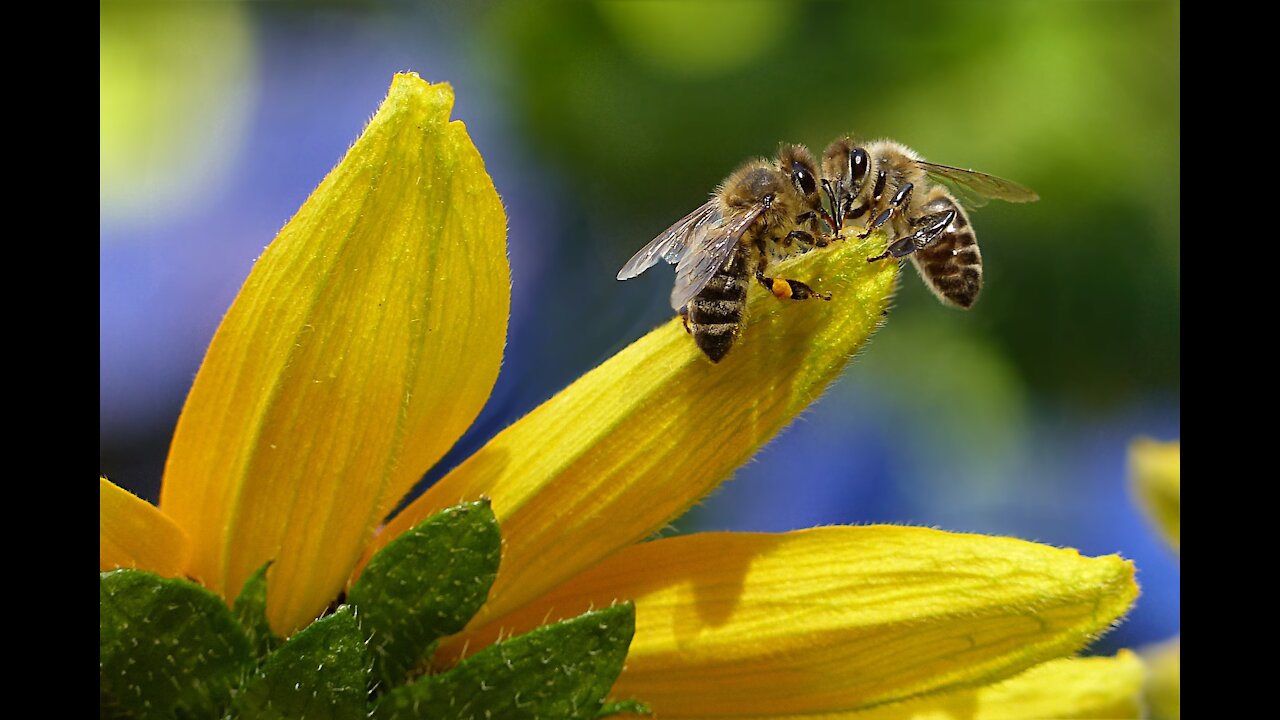
Bees give us honey
Honey bees: They Give Us So Much More than Honey
We as a whole appreciate the sweet stuff, yet honey bees are liable for substantially more of our eating routine.
Tammy Zaluzney, Neighbor
Posted Mon, Apr 18, 2011 at 4:36 pm ET|Updated Tue, Apr 19, 2011 at 3:31 pm ET
Answer
Nectar, wax, even meade are for the most part natural honey bee items, yet these surprising little animals give us far beyond the self-evident; honey bees are immensely imperative to farming and the nourishments we appreciate.
Business beekeepers are maybe less worried about direct honey bee related items, for example, nectar, and undeniably more intrigued that as they gather dust—from which they make their life-supporting sweet goo—they fertilize a wide assortment of plants that feed our country and a significant part of the world.
As pollinators, working drones fly from blossom to bloom gathering dust, some of which they get into such a pocket or bushel on their rear legs or mid-region, however some dust they move to different plants, subsequently guaranteeing a solid harvest.
Honey bees are not by any means the only animals to fertilize plants, however they might be the most productive and essential to the amplest assortment of plants we use for food. It is assessed that around 30% of the food we burn-through is developed utilizing bumble bees for fertilization. Without them, we may plainly starve.
Business beekeepers follow blossoming crops, by and large from south to north every year. They truck their hives, a great many them, to ranches and business producers to do what nothing else can: fertilize crops. In California, around 700,000 sections of land were committed to developing almonds in 2009 and utilized roughly 1.3 million provinces of honey bees for fertilization. It is this sort of interest that keeps business beekeepers and honey bees occupied for a significant part of the developing season.
The USDA appraises that business honey bee fertilization adds about $15 billion every year to farming ventures in our country, for example, nuts, berries, leafy foods. The expense of hive rental fluctuates from yield to harvest, and year to year, yet it is enormous piece of developing our food supply.
The wellbeing and prosperity of these delicate animals with complex public activities is firmly adjusted to our own wellbeing and prosperity. The main concern is: We need honey bees! The quantity of honey bees kept today is down to about 2.5 million provinces, from a high of around 5 million settlements during the 1940s; some vibe we are seeing a more prominent level of state misfortune. While some colder time of year misfortune is typical, since the 1980s there has been a general decrease in province wellbeing.
So genuine is the issue that it was given the name Colony Collapse Disorder (CCD), and is being concentrated by researchers in numerous pieces of the country and the world. It is generally felt that there is nobody explanation behind CCD, yet various stressors, microbes and nuisances all contribute. The USDA just as state and nearby offices are for the most part keeping a nearby eye. Indeed, even little beekeeping activities and specialists are circumspectly looking after their provinces and collaborating. The Susquehanna Beekeepers Association overviewed its individuals in March to decide winter settlement misfortune levels. The USDA Agricultural Research Service reports that in excess of 33 percent of hives were lost cross country this previous winter.
In a new discussion with nearby beekeeper John Knapstein of Top of the Hill Apiary, I got some information about the challenges of keeping honey bees in a metropolitan climate, instead of the more normal provincial exertion. His answer shocked me. He said there was as of late a finding in France that honey bees kept in Paris, for the most part on housetops, were more grounded with sound states than those kept in more common provincial regions. The explanation is believed to be pesticide openness. The metropolitan honey bees are not presented similarly of pesticides to which their country cousins who visit horticultural zones are uncovered.
While setting up our nurseries this season, maybe we would all be able to offer the honey bees a reprieve and try not to utilize poisons, synthetic substances and pesticides however much as could be expected. Regardless of whether because of illness, starvation, parasites, the pressure of being shipped around the country, serious climate, utilization of synthetic compounds and pesticides, openness to different poisons or a reiteration of different issues, keeping honey bees perfectly healthy is to our greatest advantage for more than nectar they produce. While large numbers of us appreciate the sweet stuff, we as a whole rely upon the nourishments that would not exist without honey bees.
-
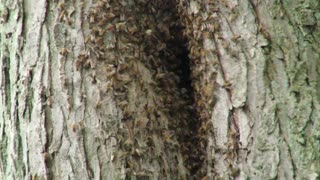 0:24
0:24
MattSt
4 years agoHoney Bees
4921 -
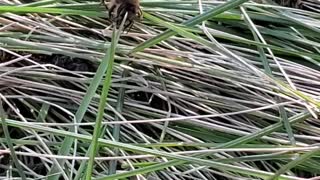 0:17
0:17
WoodenBoxMen
4 years agoHoney bees!
31 -
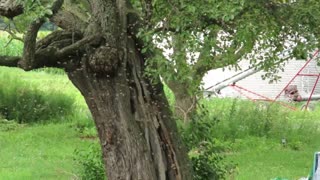 0:17
0:17
MattSt
4 years agoHoney Bees Swarming
128 -
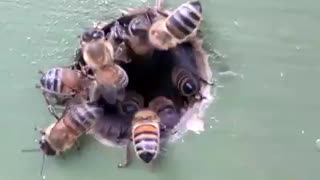 0:30
0:30
Danielgast46
4 years agoMy honey bees
1071 -
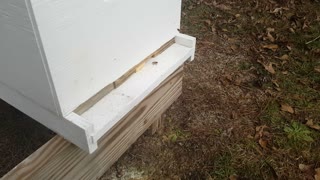 1:27
1:27
Smitty's Bees
4 years agoSmitty's honey Bees
90 -
 2:48
2:48
leeshew
4 years agoSwarm of Honey Bees
145 -
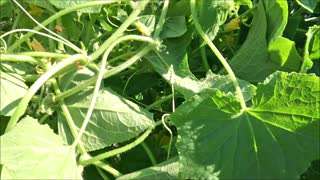 1:56
1:56
The Kansas Gardner
4 years agoHoney bees in the Kansas Garden.
31 -
 0:10
0:10
acollins23
4 years agoHoney bees enjoying the sunshine
46 -
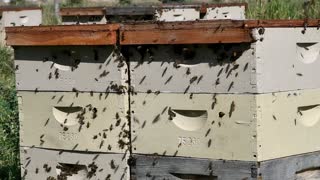 0:17
0:17
dthansen
4 years agoHoney Bees Swarming The Hives
58 -
 3:51
3:51
HowStuffWorks_Science
4 years agoBrainStuff: Why Are Honey Bees Disappearing?
93